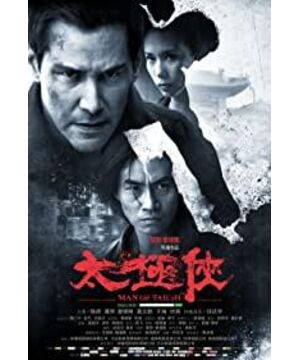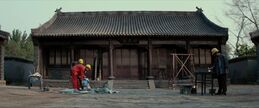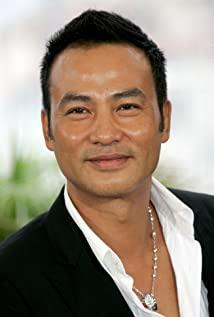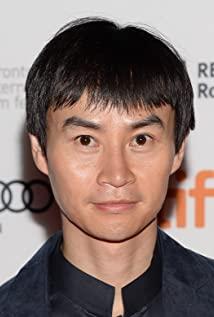A few years ago, Hollywood used his strong industrial strength to try to complete the integration of Western values and Japanese Bushido, and finally completed the sublimation result of this integration through the mouth of the character. The Bushido spirit has become a kind of practice for understanding life. And the belief that is higher than life, the last film named "The Last Samurai" became Japan's box office runner-up that year. As a result, the impact of the output of values was positive, even though her core actually appeared not small. The deviation.
Looking back at this "Tai Chi Man", Keanu's Chinese Kung Fu complex was formed during the Matrix Period. Through this film, we can clearly feel that he is in love with Chinese Kung Fu, although he is still clearly not clear. What is the conceptual difference between the two terms of Chinese Kung Fu and Tai Chi. So he traveled all the way to China and formed his own team. Yuan Heping, an old friend on the sick tower, dedicated us this sincere action film, which is also obviously a Hollywood genre.
We can clearly see the difference between this film and domestic kung fu movies. Chivalry and enmity are no longer the core elements to promote the development of the plot. The main story of the plot does not intend to record the growth of the character’s personal strength. Its relatively serious tone is more serious. It cuts a clear line with the Hong Kong action comedy represented by Jackie Chan.
The reason: domestic kung fu movies have long known the audience’s appeals and thinking logic, so they often ignore the exploration of the meaning of kung fu itself, and instead rely on the creation of a dramatic conflict in the text to capture the viewer. Hong Kong Kung-fu movies are more of a simple kung-fu scene as an independent entertainment element of the movie. The result of the above two creative concepts is the separation of literary and martial arts. The martial arts scene of the film is not necessarily related to the development of the story, and it does not help the film. The expression of the subject.
Here I have to praise the precise selection of the entry point of the film. She keenly captured the conceptual difference between "Kung Fu" and "Motion Violence", which strengthened the cultural value of Kung Fu as a unique cultural carrier. Of course, her ability to do this is also related to the Western-style thinking of the main creator. After all, the philosophical principles contained in Kung Fu have long been immersed in the bones of Chinese people, so this difference is actually the West that has always regarded "Kung Fu" as a tool and skill. People are more clear at a glance.
In this film, the core issue discussed in the script is actually Kung Fu itself. She borrowed a symbolic villain to surface the conflict between Kung Fu and violence, and tried to prove that she was right by inducing an equally symbolized Kung Fu craftsman to degenerate into a violent machine. The prejudice of Kung Fu, of course, in the end he failed. Kung Fu craftsmen understood the soul of Kung Fu culture itself, became a real Kung Fu master, and slapped all audiences who regarded Kung Fu as entertainment (both in and out of the play). .
We might as well interpret the last battle of the film: Chinese Kungfu focuses on self-cultivation. The purpose of martial arts competition is to examine martial arts training rather than fighting skills. Where. So we saw that when Keanu thoroughly demonstrated his violent machine-like mania and arrogance, the Tai Chi kid who had played mixed Sanda for a lifetime (ha ha ~) finally picked up the authentic Tai Chi and broke the enemy in one fell swoop, in all fairness, although There was a problem with the shot scheduling of this battle, and the last punch of the Qigong Cannon was really a bit mysterious, but this battle is indeed the sublimation point of the whole film, and I borrow Keanu’s last sentence to conclude: I know you had it in you! (I know this is your essence!) Keanu's unique interpretation of Chinese Kung Fu can be regarded as a formal graduation.
As a film, the film can only be regarded as a qualified level, but we should welcome this kind of sincere and cultural exchange ambitions, because in essence, this is a benign output of the entire Chinese culture!
View more about Man of Tai Chi reviews











